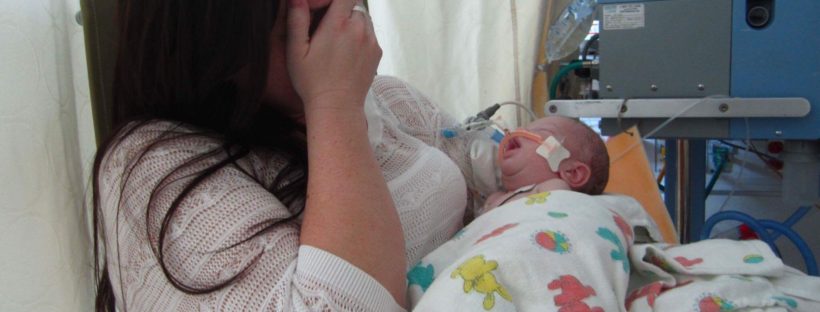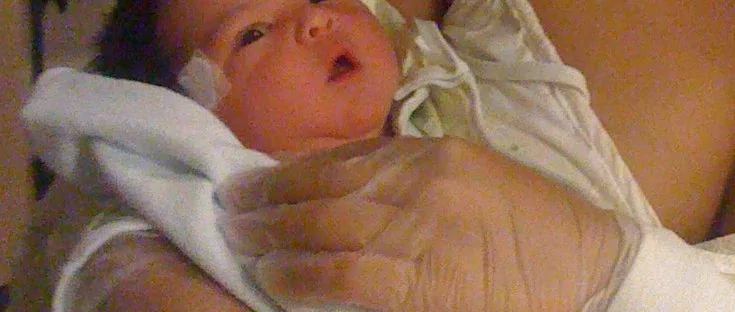By Jamie Nguyen
As new parents, my husband and I relied on professionals: doctors, nurses, lactation consultants to guide us in providing the best care for our newborn. But what happens if most of these professional have bought into a dangerous lie? The lie that all moms, except in very rare cases, are able to produce enough milk for a newborn baby.
After a long unmedicated labor that lasted over 36 hours, my daughter Noemie was born on November 2nd 2016. She was perfectly healthy and weighed 7 lbs 3.5 ozs. My goal was to exclusively breastfeed and the staff at the Baby-Friendly hospital were very supportive. Noemie lost 4% of her weight in the first 24 hours and we were told that it wouldn’t be anything to worry about until it got to more than 7%. However, she had become very fussy and inconsolable, but as we were new parents we just assumed that this was normal baby behavior. Having taken a breastfeeding class, I simply trusted that my body would make enough milk for her. I had been told that not being able to make enough milk was very rare. I asked to see a lactation consultant as I had previously had breast surgery to remove a benign lump from my right breast. The lactation consultant told me that I should have no problem breastfeeding from just my left side. She reassured me that my milk would “come in” sometime over the weekend at day 4 – 5. We were told to get a weight check at the pediatrician’s office on day 4.




